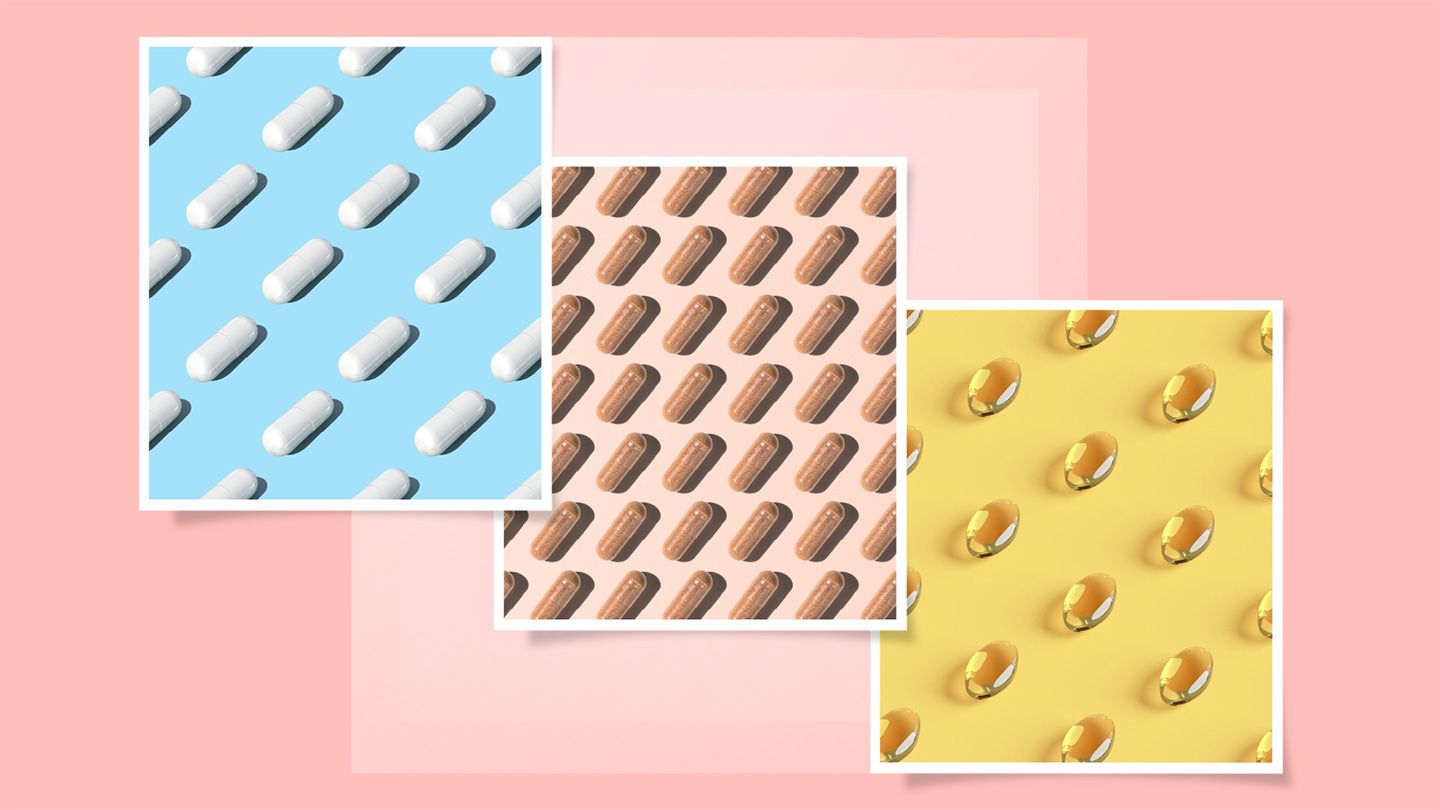Note: The U.S. Food and Drug Administration (FDA) does not approve supplements for safety or effectiveness. Talk to a healthcare professional about whether a supplement is the right fit for your individual health, and about any potential drug interactions or safety concerns.
Supplements might seem like a healthy add-on if you’re managing prostate cancer, but they’re not all helpful, or even safe. Certain supplements have been linked to cancer progression. Others can interfere with cancer treatments and other medications.
Another challenge is that the supplement industry isn’t regulated like prescription medications. Product quality and labeling can vary a lot, making it difficult to know exactly what you’re taking and how it might affect your care. This is one reason to focus on a nutrient-rich, plant-based diet with foods like vegetables, fruits, legumes, whole grains, and healthy fats, which can provide vitamins, minerals, and protective compounds naturally.
But there are times when supplements are necessary when you’re managing prostate cancer. For example, you may be prescribed vitamin D and calcium if you’re on hormone-blocking medications that lower testosterone to slow cancer growth, says Gabriella Nowicki, RDN, an oncology dietitian at Rebecca Bitzer & Associates. These hormone treatments can weaken the bones over time, so your care team may recommend supplements to protect your bone health.
If you have prostate cancer and are considering taking supplements, talk to your oncology team first. They can determine if you’re low on certain nutrients and suggest a safe option if needed, especially since cancer treatment can make it challenging to eat well, says Jeanna Rich, RDN, a certified specialist in oncology nutrition at OSF Cancer Services.
With this in mind, consider avoiding the following supplements if you have prostate cancer.
1. Vitamin E
Vitamin E (or alpha-tocopherol) is an antioxidant and can protect against various diseases such as cancer and heart disease. With benefits like these, it’s easy to think that more antioxidants must equal better health. But for prostate cancer, research suggests otherwise.
“Studies have shown that high-dose supplementation of greater than 400 international units (IU) [of vitamin E] per day can be associated with increased risk of prostate cancer and even cancer progression,” says David Taub, MD, a board-certified urologist and the director of urologic oncology at Baptist Health South Florida in Boca Raton. To put this in perspective, the recommended daily allowance (RDA) for vitamin E — the amount most healthy adults need each day — is 15 milligrams (mg) or 22 IU. But not all studies have shown the same results, which means the evidence isn’t clear-cut.
In addition, cancer treatments like chemotherapy and radiation work by creating oxidative stress that damages and kills cancer cells. Large doses of antioxidants, like vitamin E, may make cancer therapy less effective by working against oxidative stress and actually protecting cancer cells from the damage the treatment is meant to cause, says Rich.
If you need prostate cancer surgery or other procedures, it’s important to know that vitamin E can cause bleeding, says Dr. Taub, which is why your care team may ask you to stop taking it.
To get enough vitamin E, reach for foods like leafy green vegetables, seeds, nuts, plant-based oils, and fortified cereals. These food sources are safe to enjoy regularly, even if you have prostate cancer, says Rich.
2. Zinc
When cold and flu season arrives, people hoping to boost their immune systems may opt for zinc lozenges. Zinc supplements have also gained popularity for keeping the prostate healthy, says Rich. A study in men whose prostate cancer had not spread to other organs found that small doses of zinc (between 1 mg and 24 mg daily) might be helpful after diagnosis.
But at high doses, zinc supplementation can be an issue. “Consistent, high doses of over 75 mg [of zinc] a day have been connected to increased risk of aggressive prostate cancer,” says Nowicki. And those who took zinc supplements for 15 or more years were more likely to develop the deadliest forms of prostate cancer.
For reference, men ages 19 and older should get 11 mg of zinc daily, and the upper limit — the most zinc someone can take without having negative health effects — is 40 mg. Because of these findings, experts recommend avoiding high-dose zinc supplements if you have prostate cancer.
3. St. John’s Wort
You’ll find St. John’s wort in many forms, such as teas, capsules, and extracts, at most health stores. This herbal supplement is used to help with depression, as well as menopause symptoms in women. But if you’re being treated for prostate cancer, St. John’s wort is one to avoid, says Rich.
St. John’s wort activates a liver enzyme that speeds up the breakdown of certain medications. If you’re receiving anti-cancer drugs while taking St. John’s wort, your body may eliminate these medications before they have a chance to work. For example, docetaxel (Taxotere), a chemotherapy medication often used to treat prostate cancer, may not work as well if taken with St. John’s wort.
“The supplement can also interact with many oral prostate cancer medications, including enzalutamide (Xtandi), apalutamide (Erleada), and abiraterone (Zytiga), and may reduce their anti-cancer effect,” says Rich.
With so many possible interactions, Rich says the best approach is to stay informed. If you’d like to look up a supplement on your own, Memorial Sloan Kettering Cancer Center offers a database to check how herbs and supplements might affect your cancer treatment. But always let your oncology team know what supplement you’re taking or considering taking.
4. Selenium
Brazil nuts, seafood, eggs, and whole grains naturally contain selenium, a mineral your body needs in small amounts to support your immune system and thyroid. Because it also acts as an antioxidant, selenium can protect cells from damage.
But “if taken in higher doses, selenium has been linked to an increased risk of prostate cancer,” says Taub. In men who already had high selenium levels, taking high-dose selenium supplements was tied to faster increases in prostate-specific antigen (PSA) levels. And for those taking 140 micrograms (mcg) of selenium or more per day after a prostate cancer diagnosis, the risk of death from the disease was more than doubled. By comparison, adults only need about 55 micrograms of selenium each day, making 140 micrograms nearly triple the recommended amount.
While high-dose selenium supplements can be problematic if you have prostate cancer, it’s safe to get this mineral from food, says Rich.
5. Saw Palmetto
Walk into any pharmacy and you’ll likely see shelves of “prostate support” supplements, many containing saw palmetto. People often take this herbal supplement to relieve urinary symptoms related to an enlarged prostate, also known as benign prostatic hyperplasia (BPH), but it’s not recommended if you have prostate cancer, says Taub.
There isn’t strong safety data to support taking saw palmetto if you have prostate cancer, and it hasn’t been shown to improve PSA levels or prostate health in clinical trials, he says. And saw palmetto can increase bleeding risk if you’re taking blood thinners like warfarin (Coumadin) or antiplatelet medications like aspirin. That could lead to complications during recovery from surgery or other treatments where bleeding is a concern.
Plus, many products marked as “prostate support” combine saw palmetto with high-dose zinc, or other ingredients not supported by research, says Rich. This is another reason to check with your oncology team before taking these products.
6. High-Dose Multivitamins
Many people take multivitamins to fill nutritional gaps, especially during cancer treatment, when appetite changes, fatigue, or other side effects make eating well difficult. But it’s also worth knowing what’s in these supplements. Some multivitamins use lower-quality ingredients and aren’t third-party tested, says Nowicki. And vitamins or minerals taken together — like calcium, magnesium, iron, and zinc — can compete for absorption, meaning the body may not take in as much of each, she says.
There’s also no evidence that multivitamins help prevent cancer from coming back or improve survival, says Taub. Plus, taking too much of these supplements can lead to vitamin toxicity, in which fat-soluble vitamins like A and D build up in your body and cause nausea, headaches, or damage to your liver and kidneys, he says. Multivitamins may also interfere with chemotherapy or interact with other supplements, making treatment less effective.
A variety of fruits, vegetables, whole grains, and lean proteins can usually meet your nutrient needs without the need for multivitamins. But if you’re struggling to eat enough or blood tests show that you have a vitamin deficiency, your cancer care team can help you find safe supplement options that won’t interfere with treatment.
7. Antioxidants, Like Vitamin C and Coenzyme Q10
In addition to vitamin E, antioxidant supplements like vitamin C (ascorbic acid) and coenzyme Q10 (CoQ10) are often used for their protective effects. They can be helpful when you get them from food, but taking antioxidant supplements during cancer treatment can cause problems similar to those of vitamin E.
For example, antioxidant supplementation during chemotherapy or radiation may interfere with how well the treatment works, making it less effective.
Food sources of antioxidants, like fruits, vegetables, nuts, and whole grains, are safe to include in your diet during treatment and can offer plenty of benefits. Oncology teams usually recommend avoiding antioxidant supplements during cancer treatment, says Nowicki. “But after treatment, your care team can help you decide if certain supplements make sense for disease prevention,” says Rich.
The Takeaway
- High-dose supplements such as vitamin E, zinc, and selenium may increase the risk of prostate cancer progression or interfere with treatment.
- St. John’s wort and saw palmetto can interact with certain prostate cancer chemotherapy treatments and increase bleeding risk.
- Antioxidant supplements such as vitamin C or CoQ10 taken during chemotherapy and radiation may make these treatments less effective.
- A balanced, plant-focused diet is the best way to get the nutrients you need. If you don’t have much of an appetite because of treatment or are concerned you’re missing certain nutrients, ask your oncology team before you start any supplements.




